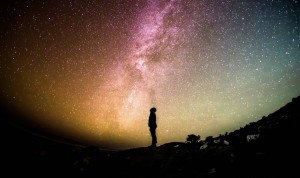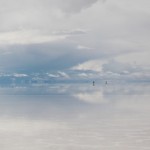
Easter has come and gone, and I gave my usual minister’s talk about the meaning of Easter: that each of is divine.
What a wonderful thought! But what does it mean for us in the days after Easter?
How do we go about being divine?
This is not a new idea, of course. The first chapter of the Bible suggests we are made in God’s image. You see glimpses of it when humans are at their best: living, loving, giving, creating, just as the Universe does.
We’re like drops of ocean water – a drop is not the whole ocean, but it is made of the same elements. Our divine qualities may be latent, but they can be developed.
Jesus talked about this often. He didn’t claim all the God-power for himself. He said we are the light of the world, and that anything he could do, we can do.
In all four gospels, Jesus’ parting words suggest we are equipped to carry on his work, which is to express the divine on earth and live as God in human form.
Okay, game on!
But what does that look like?
DON’T TRY TO BE DIVINE
I grew up in a church that was focused on behavior. You could be saved by accepting Jesus Christ as your personal lord and savior, but you were being watched after that. By God. All the time.
I strove to be nice and to behave well, even though I was a lowly human who could never live up to Jesus’ perfection.
These days, I believe living in divine consciousness isn’t about being nice or behaving some particular way.
Human and divine are not opposites. In us, they work together as one. We are divine, and can’t not be.
Richard Rohr, the Franciscan priest, calls it the True Self or Divine Identity and worries, “Some will think I am arrogantly talking about being personally divine.”
In Immortal Diamond, he wrote, “The discovery of our own divine DNA is the only full and final meaning of being human. The True Self is both at the same time, and both are a total gift.”
That means you are just as divine while washing dishes as meditating; you are expressing God just as much when you’re in a business meeting as in a church.
You are a divine human at the office, in relationships, alone in nature, or playing games with the kids.
Once you know you’re divine, there’s no going back. Any whining and negativity begin to seem ridiculous, given the power you have to live at a higher level.
You are divine, and still subject to the human condition.
HERE’S WHAT DIVINITY LOOKS LIKE
Awakening to our own divinity doesn’t get rid of our problems. Jesus is a prime example. He was criticized, hounded and killed.
Maybe living without problems is not ideal anyway. Maybe the problems are gifts for our growth.
Our purpose might be to learn how to walk through them with our divine identity at the forefront.
In her book Divine Audacity, Linda Martella-Whitsett describes what this would look like.
“We recognize the Infinite Self by its effects: our inner peacefulness, joyfulness, and well-being; our broader perspective of oneness existing beyond time and space; and giving of ourselves fully into life.”
She lists some practical applications:
- Cultivating healthy, satisfying and supportive relationships
- Offering service to others that empowers them to recognize their own spiritual capacities
- Feeling our human emotions deeply without harboring any of them
- Treasuring people who come into our lives and releasing them with love when they depart
- Blessing others with our presence
- Reveling in the activity of today on the road to tomorrow
The presence and power that we sometimes call God is at heart of everything. It’s the One Mind, all that is. Always available to us, in us, as us.
Our job is to allow the infinite to work through our finite selves, to put ego in service to soul.
We still will be human, but the world will be a better place.












